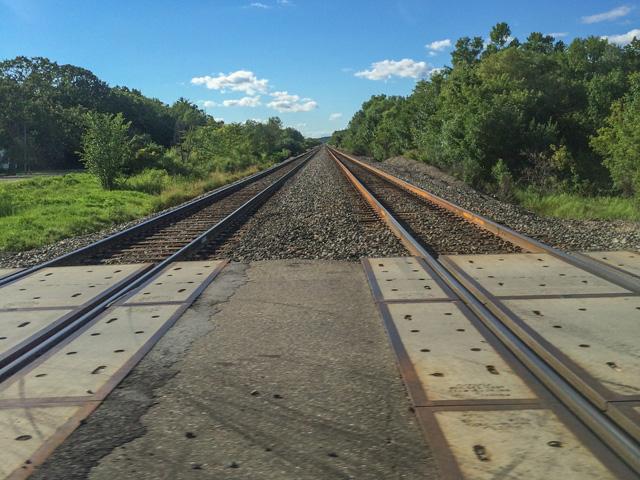Cash Market Moves
STB Proposes Reciprocal Switching Rule for Inadequate Rail Service
On Sept 7, 2023, the Surface Transportation Board (STB) in a press release said, by a unanimous vote, a Notice of Proposed Rulemaking (NPRM) in "Reciprocal Switching for Inadequate Service" was issued focusing on providing rail customers with access to reciprocal switching as a remedy for poor service.
Three standards proposed by the STB are service reliability, service consistency and inadequate local service. The press release notes the proposed standards are "intended to reflect a minimal level of rail service below which a shipper would be entitled to relief, and each standard would provide an independent path for a petitioner to obtain prescription of a reciprocal switching agreement. They are intended to be unambiguous, uniform standards that employ Board-defined terms and are consistently applied across Class I rail carriers and their affiliated companies."
The rule would require all Class I carriers to provide their customers with historical data for these service metrics within seven days of a customer's request so that rail customers can readily monitor and measure their rail service. The proposed rule also provides for affirmative defenses for service failures resulting from issues beyond the rail carrier's control, such as natural disasters or actions of third parties, according to the press release.
Importantly, notes the STB, and for the first time, the proposed rule also would require all three service metrics to be standardized across all Class I carriers. The STB also proposes making permanent certain data reporting requirements relevant to service reliability and inadequate local service currently collected on a temporary basis in other dockets.
"Since joining the STB nearly five years ago, it has become apparent to me that many of the ills of the national freight rail network stem from a lack of competition in the industry and the fact that many rail customers are captive of one Class I railroad. In my view, Congress provided the Board with authority to issue reciprocal switching orders as one way to inject competitive alternatives into the rail network," said STB Chairman Martin Oberman. "Since at least 2010, the Board has been considering various ideas to reform the current reciprocal switching regulations so that captive shippers, in particular, would have a practical and realistic opportunity to obtain a reciprocal switching order when warranted. Unfortunately, until now, the Board has not developed such a reform.
P[L1] D[0x0] M[300x250] OOP[F] ADUNIT[] T[]
"In the past several years, and particularly since 2021, it has become clear that many rail customers nationwide have suffered from inadequate and deteriorating rail service. These problems were documented in detail in the hearings conducted by the Board in April 2022. (See Urgent Issues in Freight Rail Service, EP 770 -- STB served Apr. 7, 2022). The Board has continued to closely monitor the state of rail service."
Oberman added, "For this reason, the Board has determined to focus its efforts with respect to reciprocal switching on providing relief to rail customers suffering from poor service. With the issuance of today's NPRM, the Board is proposing that one approach to improving rail service is to afford affected shippers the opportunity to obtain a reciprocal switch to a competing Class I carrier when service falls below a standard set in the proposed rule.
"The new rule contains a distinct advantage over both the existing regulations and the proposal in the 2016 NPRM. The proposed new rule sets specific, objective and measurable criteria for when prescription of a reciprocal switching agreement will be warranted. This rule will bring predictability to shippers and provide Class I carriers with notice of what is expected of them if they want to hold on to their customers who might otherwise be eligible to obtain a switching order. As a result, litigation costs to obtain a switch should be greatly reduced and petitions to obtain a switching order should be able to be litigated much more swiftly."
Association of American Railroads (AAR) President and CEO Ian Jefferies in a press release said, "The withdrawal of the ill-conceived 2016 forced switching proposal is a positive development as the extensive record developed by this Board on that proposal clearly demonstrated that it was both unwise and unworkable. In its place, the Board has proposed a new, service-based approach, which AAR is reviewing to understand its scope and possible impact on rail service and network fluidity.
"While the STB did not perform a cost-benefit analysis, any new regulation must be backed by data, narrowly tailored to address a specific and well-defined problem and ensure benefits exceed costs. Any switching regulation must avoid upending the fundamental economics and operations of an industry critical to the national economy -- that Congress saved once by partially deregulating -- and be subject to the highest level of scrutiny. AAR looks forward to engaging with the Board on this important matter."
Comments on the NPRM are due by Oct. 23, 2023, and reply comments are due by Nov. 21, 2023. Today's decision also closes Reciprocal Switching, Docket No. EP 711 (Sub-No. 1), the original proposal that the STB served on July 27, 2016.
STB Notice of Proposed Rulemaking for "Reciprocal Switching for Inadequate Service" Docket No. EP 711 (Sub-No. 2) can be found on the STB website at the bottom left under "Recent Decisions": https://www.stb.gov/…
Link to STB press release for more information: https://www.stb.gov/…
Mary Kennedy can be reached at mary.kennedy@dtn.com
Follow her on X, formerly known as Twitter, @MaryCKenn
(c) Copyright 2023 DTN, LLC. All rights reserved.




